In rural areas of Pakistan, women face significant barriers to any sort of independence. Traditional gender roles, economic constraints, and limited access to educational facilities often prevent girls from pursuing their dreams and living life on their own terms.
Many rural families prioritize boys' education over girls', believing that investing in boys' education will bring a better return for the family.
On the other hand, those that are employed, face significant challenges compared to men in terms of wages and workload. Despite performing essential tasks such as reproductive work, and caregiving, etc they typically earn less than men and have limited access to financial resources and decision-making power. Moreover, women typically own less land and lack access to vital agricultural equipment.
Even when they possess property, their control over it is often contested. This lack of financial independence further perpetuates the cycle of poverty and dependence.
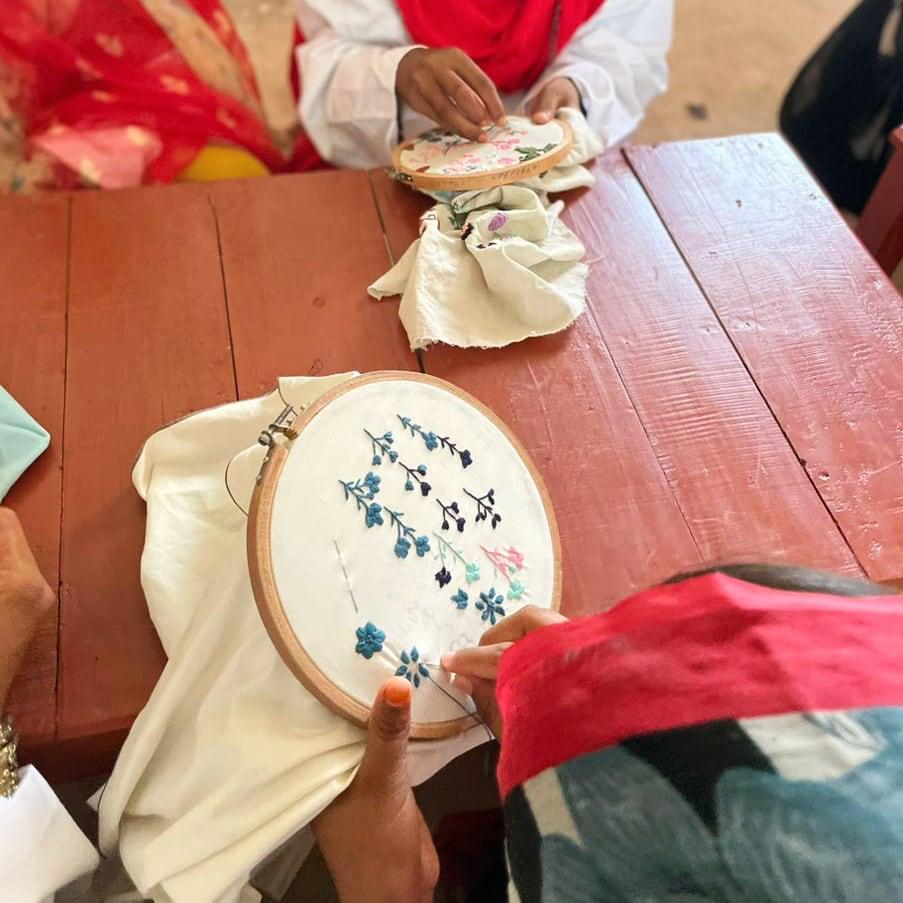
Another challenge women face is that they are often confined to unpaid labour within their households or farms, a responsibility that intensifies during peak harvest seasons. The demands of unpaid labour frequently force families to prioritize household duties over education, rendering schooling a luxury rather than a guaranteed right for daughters.
Despite these challenges, many women in rural Pakistan are working towards their emancipation and economic development. In various regions, women are coming together to form support groups and community-based organizations. These initiatives are often spearheaded by local women who understand the unique challenges faced by their communities. They provide a range of opportunities, including vocational training, microfinance, and literacy programs.
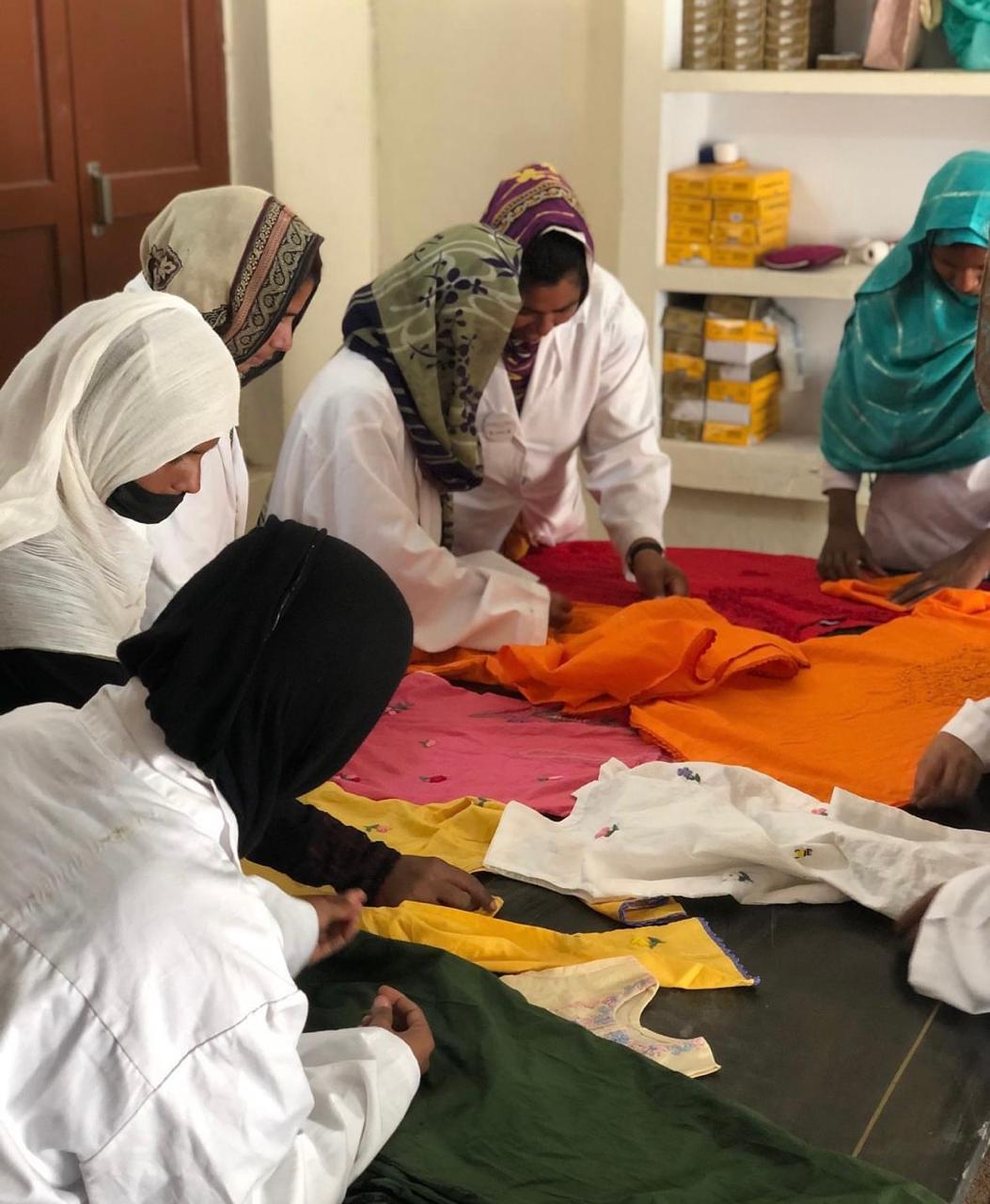
Besides, some also offer vocational training programs to help women learn skills that can lead to income-generating activities. These skills include sewing, embroidery, pottery, and jewellery making. By mastering these crafts, women can create products to sell in local and national markets, providing them with their own source of income.
One such organization making an impact is Made in Alipur. Founded in 2022 by Amina Kanju, it is dedicated to the welfare of rural women in Alipur Kanju, a village in Lodhran district in the south of Punjab. This community initiative has swiftly become a beacon of hope for rural women striving for empowerment, financial independence, and education.
When Amina moved to her village during the pandemic, she realized how local women were distressed under extreme poverty and the then ongoing pandemic putting pretty much everyone out of work. When she saw women not having any money to put even a single meal on their tables for their families and husbands away in search for work, she felt responsible and the need for utilizing her privilege and bringing a change in the lives of such women.
A poor education system, devastating health and living conditions, and no sanitation facilities just aggravated the worries of these women.
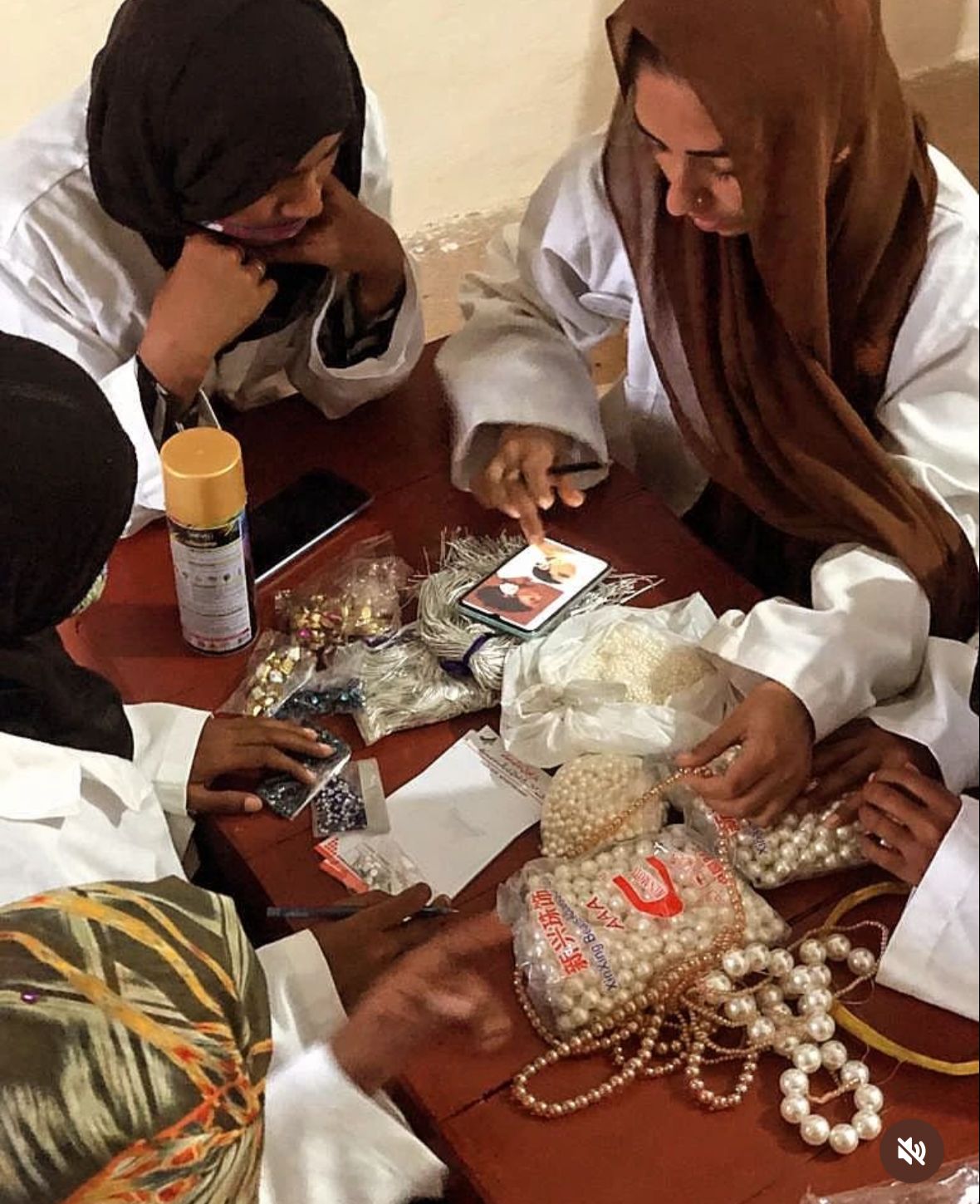
Made in Alipur started with a group of 11 women. Today, it boasts over 300 members. It serves as a skill training center where women learn various crafts.
The women of this particular village, like many in rural Pakistan, are determined to break free from the constraints of traditional gender roles and economic dependence. By participating in these initiatives, they are not only improving their own lives but also setting an example for future generations.
Through Made in Alipur, Amina and her team are working to change this narrative by providing job-oriented diplomas and educational support.
Mahnoor is one of the many workers at Made in Alipur, doing embroidery and selling her creations through opportunities provided by the organization. She told Samaa Digital over the phone from Alipur that she didn’t possess any skill before joining the organization in 2022. She was aided in her educational journey and now an intermediate-level education alongside business skills. She also teaches children in her spare time, and is thereby an example for rural women, who wish to be financially independent and educated.
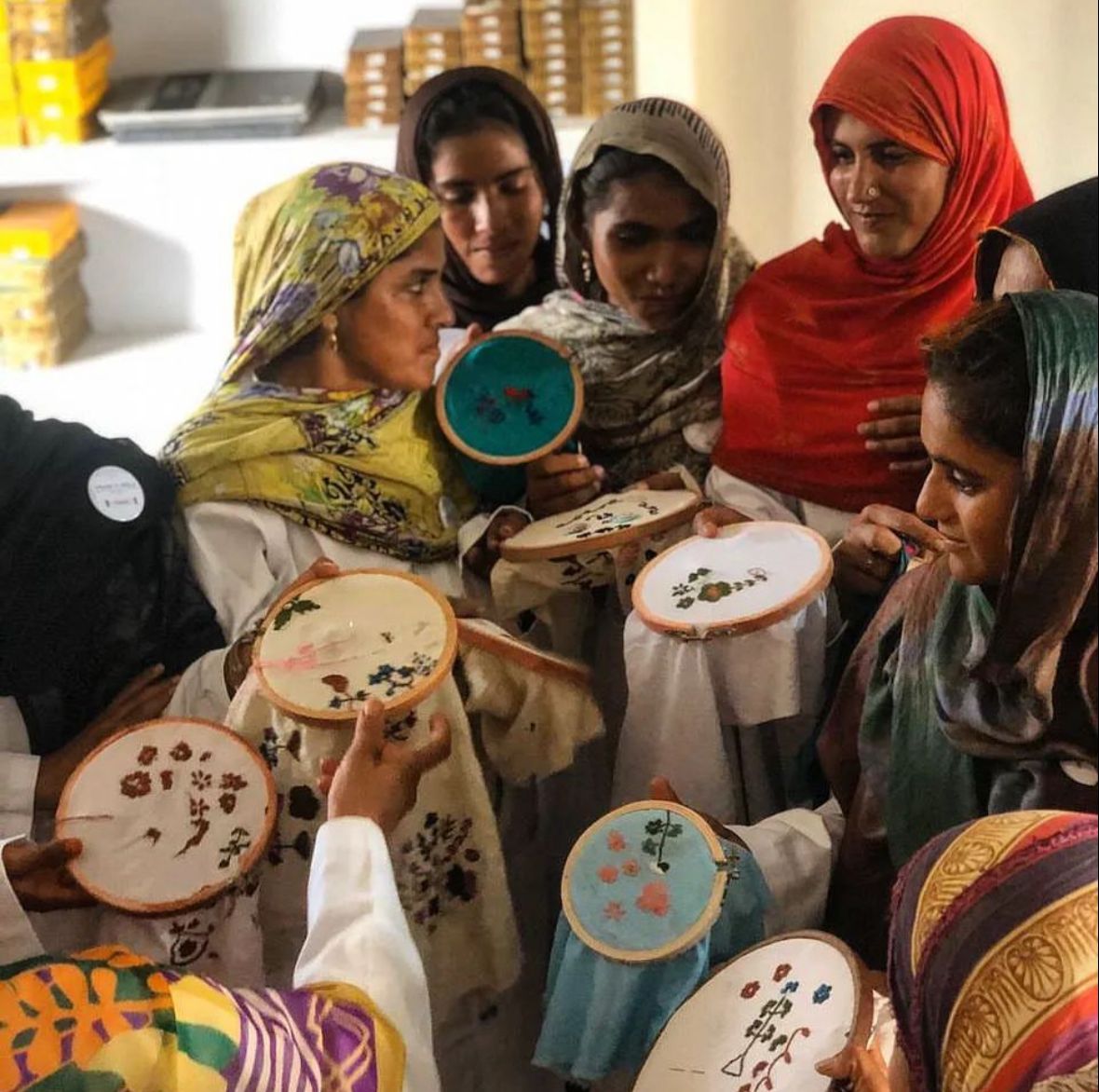
By collaborating with local brands and artists, organizations like Made in Alipur are giving rural women a platform to showcase their skills and gain recognition for their work. These collaborations have boosted the confidence and self-esteem of many women, empowering them to take control of their lives and contribute to their communities.
Tahira, who has been working at Made in Alipur since 2022, told Samaa Digital, “This organization informed me about my right to education and taught me that educating women is just as important as educating men and I will forever be grateful for everything I have learned.”
She works from 3-5pm only, hence has enough time to cater to her familial and personal needs while simultaneously earning a livelihood.
Beyond economic empowerment, rural areas need to tackle with social issues like domestic violence, gender-based violence and workplace harassment. In rural communities, domestic violence remains prevalent but often goes unreported due to social stigma, fear of reprisal, and lack of accessible support services. Women may endure physical, emotional, and psychological abuse within their households, affecting their health, self-esteem, and overall quality of life.
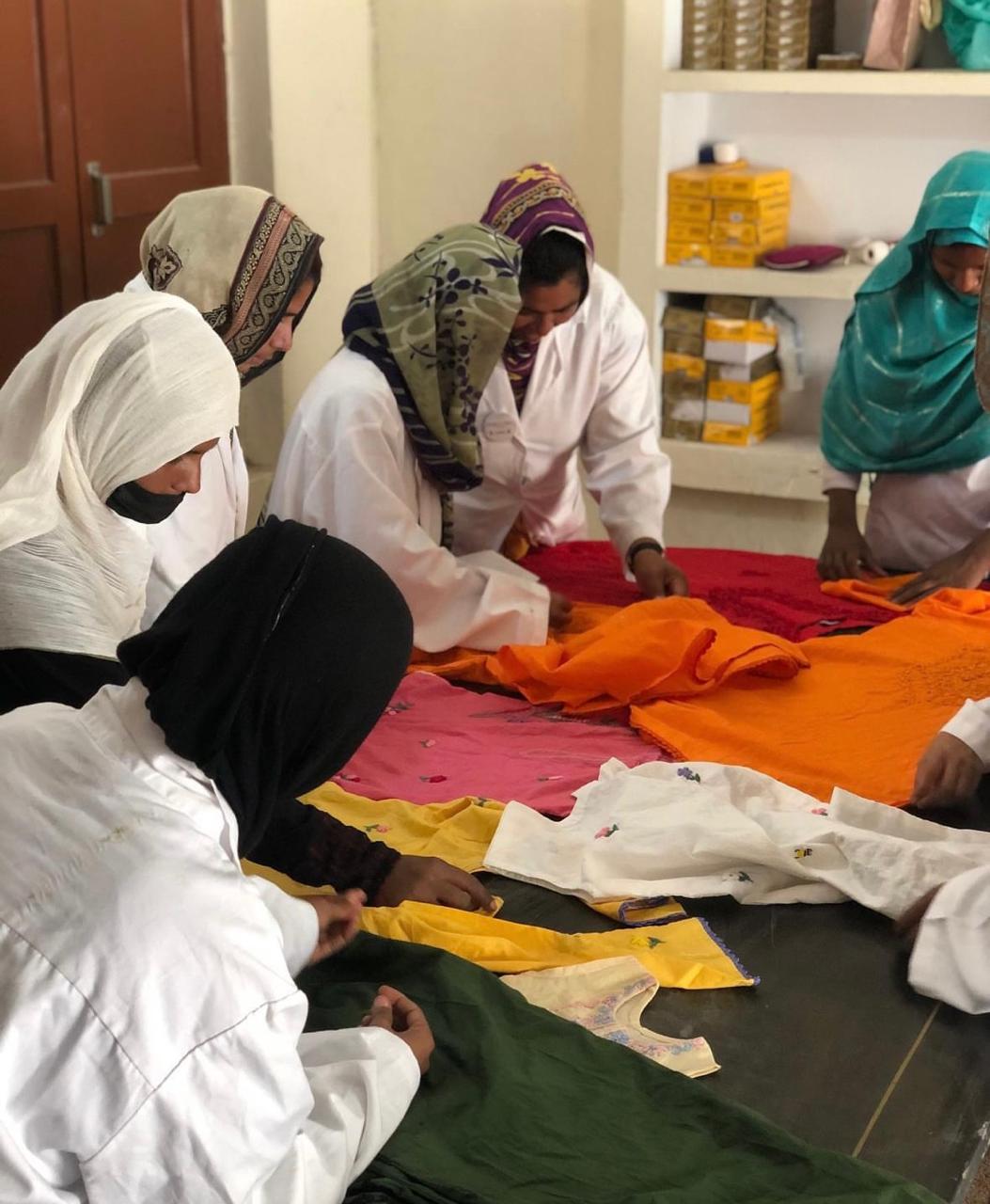
The efforts of this community organization extend to creating awareness and providing resources to combat gender-based violence, ensuring that rural women have the support they need to participate fully in society.
Organizations like Made in Alipur also provide a safe space where women support one another regardless of their background, religion, or caste. While they are a collective, each woman has a unique story and personality that is woven into every piece of fabric they create.
The journey towards emancipation and economic development for women in rural Pakistan is challenging, but the efforts of such initiatives supporting them are making a significant impact.



























